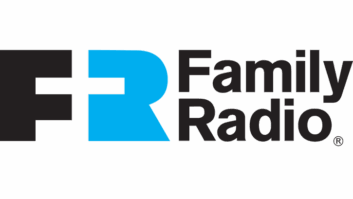A spectrum repack process that has been described as “extraordinarily complicated” by some observers has another deadline looming in a few days.
This one is specific to satellite provider SES.
For operators of registered C-Band Earth stations in the United States that declined the FCC’s lump-sum option to cover the costs of their repack realignment, the satellite fleet operator is asking users of its services to decide by Oct. 14 if they prefer to self-install dish equipment needed for the transition.
[Read: How Westwood One Views the C-Band Migration]
SES anticipates that certain dish owners will prefer to install equipment for the transition on their own, according to a spokesperson. For such self-installations, SES requests the Earth station operators notify them by email of their intentions.
Competitor Intelsat has a separate transition plan of its own.
The C-Band is spread across 500 megahertz and used by satellite operators serving U.S. broadcasters and programmers to provide TV and radio programming to nearly 120 million American homes and critical data transmission services.
The FCC is repacking existing C-Band services into the top 200 MHz of the band. In all the FCC will clear 280 MHz (3.7–3.98 GHz) of the C-Band for 5G fixed wireless services. The lower 120 MHz of C-Band spectrum is expected to be made available for 5G mobile services as soon as December 2021.
The FCC counts approximately 6,000 registered/licensed C-Band users in the country, some operating multiple sites. Fewer than half of those users chose the lump-sum option by the Sept. 14 deadline, according to people familiar with developments. In all, there are approximately 20,000 receive-only dishes in the contiguous United States, according to the FCC.
SES is offering FAQ guidance for its users faced with making a decision on self-installation here.
Fixed Satellite Service (FSS) earth station operators who need new passband filters and dishes “should face no out-of-pocket [expenses] as SES will offer a turnkey solution,” according to the SES spokesperson. “If they do have out-of-pocket costs they can personally go to the reimbursement clearinghouse and seek monies for out-of-pocket.”
Registered dish owners who declined the FCC’s lump-sum payout now must work with satellite companies like SES and Intelsat to receive “free filters and free dishes for the transition,” either to be self-installed or installed by those satellite companies.
Incumbent Earth station operators may procure equipment on their own and therefore seek reimbursement directly through the Relocation Payment Clearinghouse rather than looking to SES to cover the cost of the equipment, SES says. That clearinghouse is not yet operational.
“Those who request SES-provided equipment must provide SES with a list of the equipment that is required for each incumbent Earth station. SES expects most Incumbent Earth Station operators to request SES-provided equipment, but this is a choice each Incumbent Earth Station operator can make,” according to SES.
Broadcasters who self-install will receive remote assistance via SES’s help desk as needed to support the installation, according to SES.
Chris Imlay, general counsel to the Society of Broadcast Engineers, told Radio World in an email: “I don’t know of any incentive for a licensee to do self-installation since the FSS service provider is willing to do it. It is not always just a filter, and many broadcast engineers would want the supplier to do it.”
SES says receive only dishes may also need to be retuned or repointed.
Those who accepted the lump-sum payment are on their own, according to one expert, must buy filters and dishes and schedule installation of gear before the December 2023 deadline. “Most of those businesses are happy because they get to choose the products and labor they want. Most should end-up with a windfall-surplus after buying needed gear,” that observer said.
Earth station owners who did not register dishes with the FCC prior to the C-Band order being issued will not be eligible for reimbursement of expenses to transition equipment, according to SES. Industry observers have estimated that 20% to 30% of broadcasters failed to register their dishes.
A final clarification of many repack details is expected to come in December when the FCC’s clearinghouse becomes operational, according to the industry source. In the meantime, SES says Earth station owners can also contact the relocation coordinator with questions: [email protected].
Meanwhile competing satellite provider Intelsat filed for bankruptcy earlier this year. The company’s Chapter 11 filing in May will allow it to continue serving U.S. broadcast and cable TV providers.






